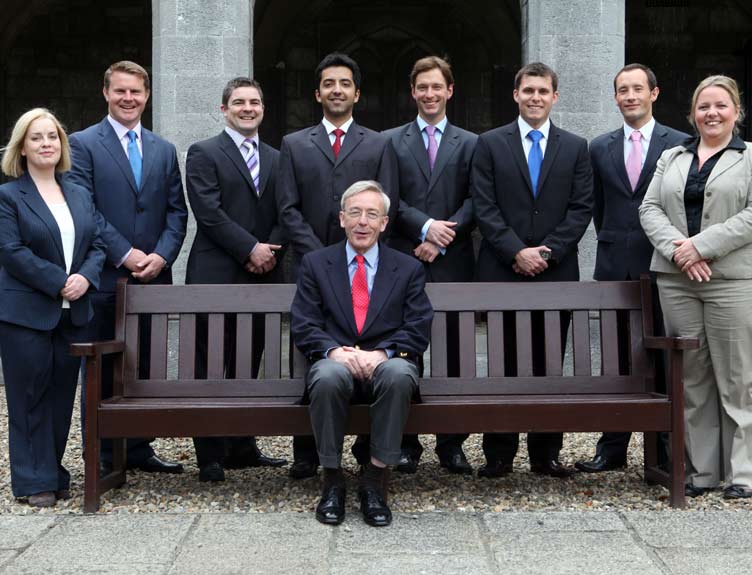Stanford University-style biomedical training begins

A specialist training programme in medical device innovation, modelled on Stanford University's prestigious Biodesign Programme, was officially launched at NUI Galway on 2 August.
The BioInnovate Ireland Fellowship Programme has been jointly developed and delivered by a consortium of five Higher Education Institutions. These include NUI Galway, University of Limerick, Royal College of Surgeons in Ireland-Centre of Innovation in Surgical Technology (RCSI-CIST), DCU and UCC.
The new programme aims to hot-house, in the space of 10 months, talented individuals with experience in the biomedical sector. The overall aim of the programme is to train graduates to support the creation of new, cost-effective medical devices that improve patient care. This will be brought about through a collaborative approach that focuses on the needs of patients, physicians and the health care industry as a whole.
Programme participants will experience an intensive clinical immersion in teaching hospitals to help identify potential medical device development opportunities. Throughout the 10-month period, they will avail of the expert advice, direction and guidance from dedicated industrial mentors and serial entrepreneurs.
This initiative has received funding from Enterprise Ireland and several corporate sponsors including: Medtronic, Creganna-Tactx Medical, Lake Region Medical Ltd and Steripack, Ltd. It is envisaged that the BioInnovate Ireland Fellowship Programme will act as a catalyst for the generation of further product development research and spin-out companies in collaboration with partnering companies.
Speaking about the programme, the newly appointed Fellowship Director, NUI Galway's Dr Mark Bruzzi, said: "Our mission is to educate the next generation of leaders in innovation and to support the future of the medical device technologies sector in Ireland. The academic partners driving the development of the BioInnovate Fellowship Programme are committed to support innovation and entrepreneurship and to evolve the academic component of the Irish Medical Technologies ecosystem to ensure that the needs of the industry are met."
After an arduous application process, the eight successful applicants in the programme's inaugural year, have now been split across two teams in Galway and Dublin. Commencing immediately, both teams will work within the clinical are of Cardiology, focussing on interventional and surgical procedures. The group of eight candidates come with a wealth of experience across the disciplines of medicine, engineering, business, legal and science. The impetus for the development of this specialist training programme emerged from the 2010 Innovation Taskforce Report.
The Fellows will be awarded with a Masters in BioInnovation upon completion. The search for the group of candidates to participate in the next cycle of the BioInnovate Ireland Fellowship Programme will commence in the Autumn.



